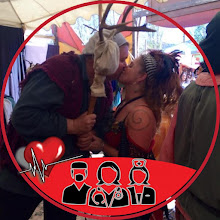Last week I finished up my latest Isle of Dread campaign. It has pretty much been a year and a half of mostly weekly sessions.
I have used Isle of Dread a bunch of times since I was a kid. I remember at around 17 years old at Loscon, a Southern California Sci Fi convention, with my girlfriend, my best friend and his GF, and a couple of other dude friends (we all usually played DnD together) spending around 8 or 9 hours over two late nights in one of our rooms sitting around the little hotel room table making a quick trip to The Isle of Dread. I managed to cram in a sea voyage with a surprise stowaway assassin attack and a fire, landing at the island native villages, and trekking to the plateau and partying with alchohol and sex loving Rakasta up in the clouds. I don't recall for sure, but I think we did do the plateau dungeon in the days after the convention. But the point is I had early memories of this module and have used it every several years in a major way. In later in life campaigns, I had a campaign "The Pagos Trading Company" where characters helped a start up trade company travel to the Island and start up a trading post. Though the Pagos company is defunct, one of its old merchants still works out of the trading post and even has a tiki bar!
I know that sounds like its a busy place now, but it is still hard to get to. You know, that mysterious fog and monsters and pirates and etc. And the main island is as wild as ever.
I really vetted hard to get a good group of players. The online forums and Discords with the best odds to reach potential players have become, at times, wastelands of lame and weird usernames and particular expectations. But I have gotten good at picking my shots. And I did not rush those early games. You might call them several sessions 1's. I started with a solid player, Christine, who had advertised on Roll20 looking for a campaign, and I sort of team up with her to get a few others together. Some good ones that remained. A couple that ended up not working, but by around sessions 4 I had a solid group of people. And pretty much all those of us played together for that long year and a half.
I did not rush them to the Isle of Dread. I hooked them up with Merlot Von Tanmoor, a very connected (knows the queen and proves it) wizard and academic from old Tanmoor money. I used him in the last couple of campaigns as an easy patron type. The characters included a couple of freshly arrived drow from the deep. A gnome artificer who also considered herself an archeologist, and who quickly became a mentee of history professor Merlot. Also Kork the dragonborn cleric. That was fun because Dragonborn are newly showing up in my originally 1st ed. setting.
Merlot took them to the opera in a carriage one night, and the characters role played for an hour in it though the ride was probably only 20 minutes. He took them to a major party he threw for connected people and fought assassins there and later in the street. Got arrested for the street fight and I played rap music for that scene inside the precinct with them in chains and we all laughed.
They spent nights drinking at Merlots haunted estate house, and enjoyed the city through second level, then went to the island. All this time there was great role-play, engagement with my stuff, and I was really loving it all.
An eventful couple of week sea journey, meeting the Tanaroa natives and drinking at the old Pagos tiki bar on the beach. Kork, and orphan who grew up back in the Tanmoor healing gods cathedral, found the secret society of silver dragonborn expats from the mainland that his parents were from. Fought a recurring group of Allosaurus the islanders called "The Seven Brothers," saved villagers from the big pirate camp. All the good stuff. Everything but the plateau (where now instead of the old dungeon I have the spaceship from Barrier Peaks).
 |
| Never went there tho.. |
The campaign rolled along on the reg. In those early months I had some rough times. I had a family member pass, and I had a long struggle with a persistent sinus infection that could have killed me (takes forever to see a specialist in this town) and a surgery for it that could have blinded me. But the games were so much fun. So much great character interaction. In a good way (mostly) I could barely get a word in sometimes. I like to say, "Sometimes you run the game. Sometimes the game runs you." But I loved it.
But it let me kick back a lot. The scenarios and campaign had a slow progression, combined with all of them pretty much were Eastern time zone, and since I like to start games at night we usually only played three hours. But for online gaming I have really specialized in getting a lot done in a short amount of time, even with all that role playing. And as a veteran DM, especially with people you are meeting online, I have come to understand most campaigns will not get to their conclusion. Live for the now.
Early this year, maybe four or so months after my campaign was in swing and my rough times of late 2024, a couple of my regulars started their own games on other nights. Kate, a 24 year old from Tennessee who had an odd Slenderman fixation (who knew there was a "Slenderverse"?) and had a great energy also had a Legend of Zelda fandom, and was starting a campaign based in Hyrule (look it up if you don't know). She invited me and the players to play in it. I was the only one who bit. I mean, Breath of the Wild is a modern favorite of mine, and outside of the original game it was my entryway into the world. K was having trouble getting players at first, so I decided to play to be supportive (always the road to hell is paved with kind intentions). A week later she had found several people WAY into the "Zeldaverse" and pretty much all also aficionados of Pokemon, Digimon, whateverthefuckmon, and furry stuff etc etc. I mean, it was LBGTplus plus plus plus. But hey, I have had such in my games of recent years, but this was next level snowflaky floof 🌈.
I have to admit, K is creative, but I was just not into the Zelda stuff, the creatures and lore and all that. Though I had been playing BOTW for a long time, I could never get the names of the creatures correct. That shit did not matter to me in a video game. It was basically 5th ed DnD, but everything skewed to harken to stuff from a dozen different versions of this setting across games that are only slightly connected to each other. I invested myself into this character, a ruthless young hunter and wild child who was deadly with a bow. But the action was few and far between. There was once three sessions where zero action happened. And since at least one of the twinks (they openly referred to this term) and one of the PokePillow hugging cat ladies was uncomfortable with my character hunting and butchering wildlife. So I made her mostly a forager. Jeez. At least I had all those hours to work on my own campaign while long, out of game conversations broke out about "which Pokemon do you most feel a bond with." Ugh.
And then another one of my players started a Sunday campaign, their first attempt. So I had to of course try to support that. Especially since all his players were pretty much recruited from my thing. It's a free world, but you know, I worked hard to gather this group and it would be good for to talk to me about it first, plus Sunday was meant to be my alternate day was kaput. Ah well.
He was pretty good at it being a new DM. This started I think while I was on an out-of-town trip, and I joined a couple weeks later (I talk about my monk character Zen in some recent posts). But I dunno. I was never truly happy in these other games. I think it showed sometimes. Like I said I used a lot of the time to just be a quiet player and work on my own stuff (something you could never really do in face-to-face gaming).
I have to say about this, in my life I rarely have been a player compared to my gamemastering hours logged. Since I was a kid. I don't know why, but the player experience never appealed to me. Outside of "story" or "agency" for any of this stuff, I just want to set a scene with a map and some description, sprinkle in some NPC's and maybe some interesting thing happening and let the characters romp around. I don't really want to do the romping. So when I realized I was not really happy with all this other gaming I started feeling burnt out. And though I always had fun within my sessions, which I think were some of the best of my online gaming life the last 5 years, I was starting to yearn for some new voices in my games.
With the holidays swiftly approaching, this seemed like a good time to wrap up all my gaming for the year a bit early and to start working on a new one for next year. I have to admit, I have been building life rafts for months because I foresaw I was getting more and more dissatisfied. There was a line in the show Mad Men where his soon to be ex-wife said to him "You only like the beginnings of things." And that's me in life in a nutshell. Relationships, jobs, or campaigns and game groups. The earlier parts are deliriously happy. But I get discontented with some situations that started out amazing. I actually like a lot of quotes from Mad Men because I feel kinship with lots of them.
So yeah, I was doing too much of it for too long (a year and a half is longer than most of my romantic relationships). So I needed to cold turkey for a couple weeks before working on the new things. A new campaign. I might even consider playing in campaign of somebody as well. But three nights a week? It was too much. As with any drug you do too much, I am jonesing a bit now. And I did like most of these people. But life is getting short and like Duke Leto said to Paul "a man needs new experiences."
I am in a semi-weekly Marvel Multiverse thing the last few weeks to learn the system (so in my final weeks of my group I was actually in FOUR campaigns, though this one had none of my regulars in it).
But now that I treated you like my bartender and told you about my gaming trials and tribulations sinking in a gentle pool of wine, I can mention the topic title of this post. "The Last Isle of Dread" campaign I will ever run.
OK, maybe saying that is hyperbole. But look, I'm a GenX'er and I ain't getting any younger. Sure, been eating fairly healthy in recent years. Going to the gym every other day. Riding my mountain bike on the weekend in the Sierras. No grey hair yet. But why age myself? Well, this campaign was weekly but was still a year and a half. In large part due to fairly short sessions and all that role-playing by the kooks, but still. I wanted to touch on Isle of Dread in a campaign again for years. And here it was. I did it. A great campaign everybody liked, much initially being in the city which are games I love doing. Then the Island. There it is. I did it. Do I want to do another campaign with it soon? More sea voyages and time in the villages and going off to fight dinos and encounter interesting shit. I certainly did not get to do all I wanted.
The campaign had to switch directions a few sessions in when player Christine, who was in my game and the Sunday one, suddenly had to miss my Saturdays because of some medical thing she did on Fridays that made her ill for a day or two. She made Sundays a couple more times then vanished fully without letting us know what is up. Now, I work in healthcare and I can only imagine she was in chemotherapy. Hopefully she is better, but who knows. The point here I guess is I was prepping sessions a game or two ahead of time, and the plan was to explore rumors ancient civilization ruins around the island. Hidden cities and maybe going to the plateau to explore the old ruins there (and finding out a big spaceship is up there). But when she dropped out I had to start improving. I liked Chris, and felt bad about whatever she was going through, and that took some wind out of my sails months ago to a degree. Leading to some of my disappointments with how things were going. But I changed course and kept going because when actually in my zone with my wheels greased during a session, I was loving it.
But maybe that is a reason to have another party go back in some later campaign. I have all this prep work for ancient cities to explore. But I dunno. One of my players was a big Curse of Strahd campaign and fan and she turned me on to it, and I have been studying that a good deal. I have the Roll20 purchase for that material with all the tokens and locations with dynamic lighting already added and all this shit. But I am keeping open about what it will be to wait and see the make up of the next group. Maybe something more basic like a Keep on the Borderlands campaign. Or one of a couple other campaigns I created in recent years. Just use them again for a new group.
Whatever happens, that big Goodman Games copy the Isle of Dread update will stay closed for some years I think. But who knows. If I am still gaming several years ago from now maybe it will get touched upon, if not a whole other campaign with it. But for now, I want to explore new situations with some new people. Duke Leto would approve.
Cheers


































.jpg)




























